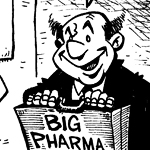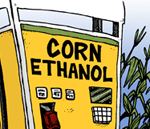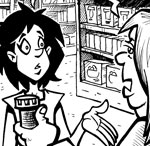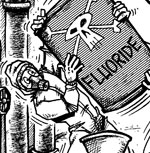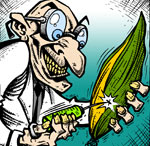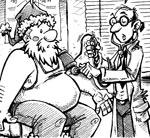What Are the Best Vitamin C Foods?
| Share on Facebook | Share on Twitter | Share on Google+ |
Millions of people in the USA, Canada, and around the world are familiar with the 1960's television show Gilligan's Island. A ship's captain, his first mate, an actress, a professor, a farm girl, a millionaire and his wife, all stranded on an uncharted desert island in the South Pacific, are the central characters of this once-popular sitcom.
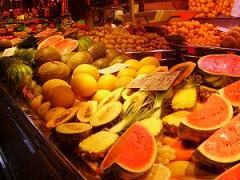
In one of the most popular episodes, the castaways become convinced that their lives depend on the vitamin C in Gilligan's last orange and argue over how to divide it among them, as they ignore the bowl of vitamin C-rich pineapples on the table in front of them.
This Is Your Brain on Vitamin C
From a nutritional perspective, the irony of the episode is that if the castaways had just divided the orange into seven slices and each eaten one tiny part, maybe the temporary boost to their brainpower would have helped them to recognize the value of the pineapples sitting in front of them.
Fruits and vegetables, the professor did not know, protect against hysteria and aggressive behavior by providing nutrients that help the brain absorb chemicals it needs to make mood-regulating chemicals. And if a fruit or vegetable helps you wake up or mellow out, chances are it is very rich in vitamin C.
vitamin C also helps your brain overcome the effects of pro-oxidants, aspartame (Nutrasweet), and MSG. It helps you feel calmer, and more satisfied. There are excellent supplements combining calcium, magnesium, and vitamin C to help you control your appetite and control your temper, but you should also be sure to eat at least a few vitamin C-rich foods.
Here is a list of some of the best food sources of vitamin C you probably have never heard of:
- No fruit has a higher vitamin C content than acerola, and acerola extracts are sometimes added to fruit juices. People who have an allergy to latex, however, often have an allergy to acerola. Such people should avoid fruit drinks if acerola is listed as an ingredient as well as Vitamin C from Acerola, USP.
- Jujube dates are especially high in vitamin C and keep indefinitely without sulfites or other preservatives when dried. If you do not grow your own jujubes or have access to a farmer's market where jujubes are sold, jujube fruit in available in most Chinese, Vietnamese, and Indian food shops.
- Fresh lettuce, even Iceberg lettuce, is high in vitamin C. Although no one really knows the effect of storage on other nutrients, clinical research at INRAN in Rome has found that bloodstream levels of vitamin C and other antioxidants increase sharply after eating freshly picked lettuce. They do not go up after eating lettuce that has been stored in gas-filled bags for a week or more, the way it is sold in bagged salads. At the very least, never eat lettuce that is limp or brown along the edges. Browning is a sure sign the antioxidant content of the lettuce has been depleted.
And what about that favorite source of vitamin C, orange juice? Most people drink orange juice for its vitamin C, but if you are trying to prevent a cold, other foods and fruits are more effective, as you can see in the list below. On the other hand, orange juice is an excellent source of the polyphenols hesperidin and diosmin. These chemical strengthen varicose veins and reduce bruising. You can drink up to a quart (approximately a liter) of orange juice a day and absorb hesperidin. Drinking more than a quart a day will have no effect on vascular strength.
Orange juice also contains linalool, the calmative chemical in lavender. If you want to maximize linalool, however, squeeze the oranges yourself. Home-squeezed oranges (either by hand or with a household juicer) contain 40 times as much linalool as mechanically squeezed oranges used to make commercial orange juice, because hand- or home-squeezing bruises the peel.
Vitamin C Foods that Are Better than OJ
And what are the foods that are better than orange juice as sources of vitamin C? A few are:
- Kakadu plum, which contains 62 times as much vitamin C as orange juice.
- Camu camu fruit, which contains 56 times as much vitamin C as orange juice.
- Rose hips, which contain 40 times as much vitamin C as orange juice.
- Sea buckthorn, which contains 13 times as much vitamin C as orange juice.
- Jujubes, which contain 10 times as much vitamin C as orange juice.
- Parsley, fresh lettuce, guava, kiwi fruit, broccoli, loganberries, red currants, green hot peppers, red hot peppers, goji berries, papaya, and strawberries, all of which contain more vitamin C than orange juice.
The few animal foods that are good sources of vitamin C, approximately as good as orange juice, include beef liver, raw oysters, and boiled lamb brains.
If you have a day you can't eat foods that are rich in vitamin C and you decide to take supplemental vitamin C, remember one important dietary addition: Drink more water.
If you take vitamin C pills, tablets, capsules, or sprays, be sure to drink 8-10 glasses of water daily. This is especially important if you have kidney stones. While taking 1,500 mg of supplemental vitamin C daily substantially reduces the risk of kidney stones, taking vitamin C while dehydrated can cause formation of kidney stones in just a few days.
Selected Reference:
Narayanan SN, Kumar RS, Paval J, Nayak S. Effect of ascorbic acid on the monosodium glutamate-induced neurobehavioral changes in periadolescent rats. Bratisl Lek Listy. 2010;111(5):247-52.
-
Skin CareMen Skin Care
-
Free ResourcesFree eBooks
-
A good laugh and a long sleep are the best cures in the doctor's book.Irish Proverb
-
Featured Health SupplementYou will find highly beneficial ingredients in Total Balance
 which are quite rare in other supplements either due to cost, or the need to protect them via enteric coating. Such as L-Glutathione, Resveratrol, RNA, ATP…and many more.
which are quite rare in other supplements either due to cost, or the need to protect them via enteric coating. Such as L-Glutathione, Resveratrol, RNA, ATP…and many more.
-
